PSC @ Supercomputing 2023
November 12-17 | Denver, CO
Booth #1203
PSC is excited to be in Denver for SC23. Our booth will feature interactive demonstrations highlighting how PSC is leveraging HPC to accelerate research.
PSC has been part of the national HPC community for nearly four decades, and we are proud to continue our tradition this year of building relationships, fostering community, and of course, geeking out about research!
Unwind at our Backyard Party!
Join us on Wednesday, November 15 from 4:00 – 6:00 pm in our booth #1203 on the exhibit floor to relax, enjoy a drink, and network with your favorite colleagues.
Research on tap
Come and visit with us in Booth 1203! We’re always delighted to see you and we’d love to share what we’ve been up to since we last met. We do have some special events planned, so be sure to mark your calendars and join us!

Ecosystem for Research Networking
Demo
Monday Nov. 13, 7:30 pm
Tuesday Nov. 14, 10:15 am & 3:00 pm
Wednesday Nov. 15, 10:15 am & 3:00 pm
Thursday Nov. 16, 10:15 am
The Ecosystem for Research Networking (ERN) is designing and implementing a prototype open source, edge computing platform to democratize access to scientific research instruments, provide networking research computing resources, handle massive data sets produced by research instruments, support computational and storage infrastructure, and more. The conclusion will be a web-based portal leveraging federated access to the instrument, workflows utilizing edge computing in conjunction with cloud computing and real-time monitoring for experimental parameter adjustments and decisions. The intention is to foster team science and scientific innovation, with emphasis on under-represented and under-resourced institutions, through the democratization of these scientific instruments.
This presentation will discuss the project’s current democratized CryoEM remote instrument, federated access design, and implementation efforts. This will include a live demonstration of an experiment workflow utilizing a transmission electron microscope (TEM) located at the Rutgers CryoEM and Nanoimaging Center (RCNF) through a FABRIC node cloudlet with edge computing and extended analysis using Bridges-2.
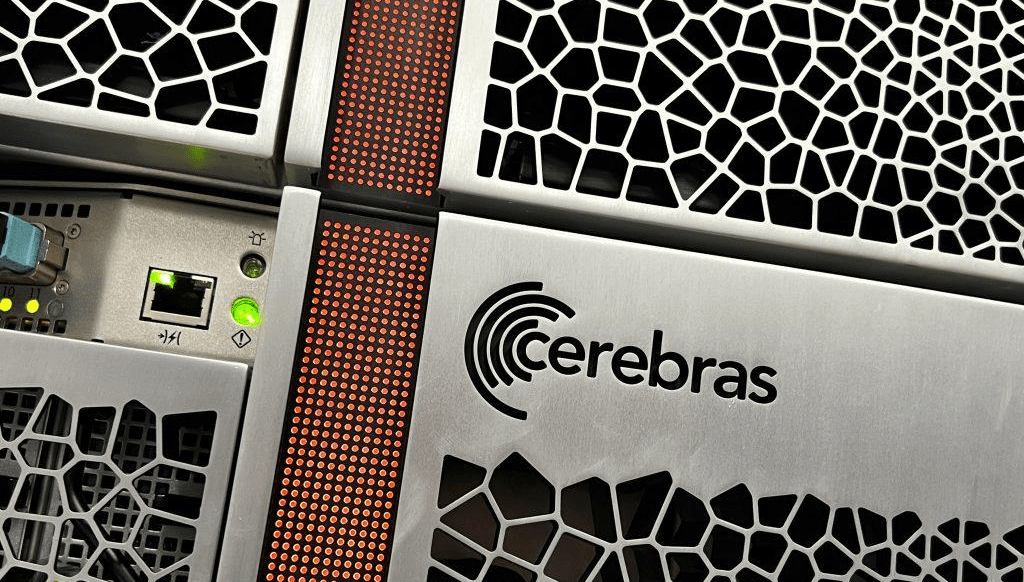
Meet our partners at Cerebras
Tuesday Nov. 14th 2:00 – 2:45 pm
Wednesday Nov. 15th 2:00 – 2:45 pm
On Tuesday and Wednesday November 14th and 15th, stop by our booth for a meet-and-greet informational session with our partners at Cerebras, who will be talking about PSC’s Neocortex machine for HPC research and machine learning. In addition, they’ll discuss scientific computing research on the world’s largest chip and their SDK-built Gordon Bell Finalist research.
Join us Tuesday and Wednesday from 2:00 – 2:45 pm to learn how you can develop kernels and deliver scientific computing research using the Cerebras SDK on Neocortex.
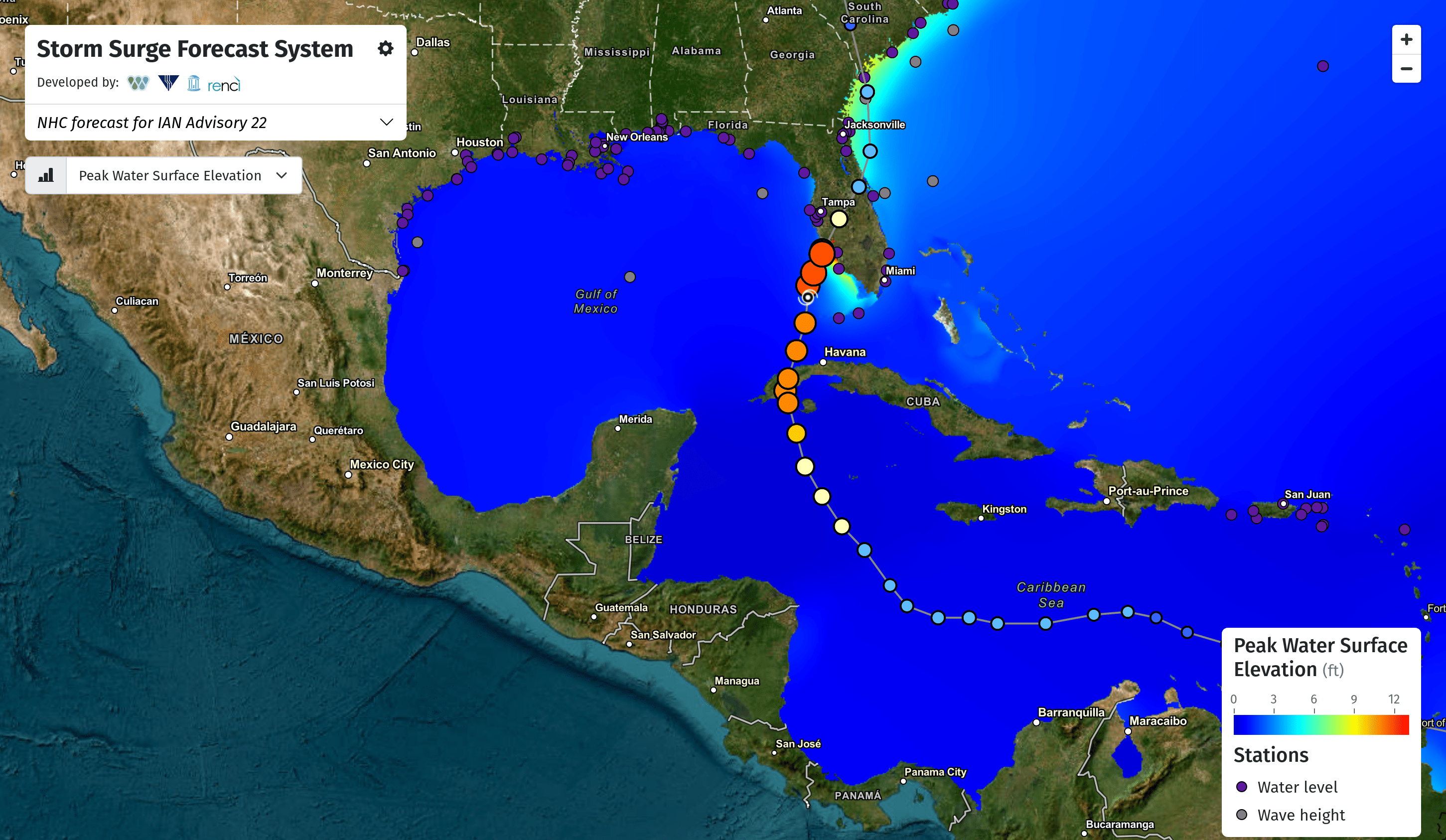
Storm Surge Forecasting
Demo
All week
PSC is working with The Water Institute of the Gulf on hurricane forecasting. We’ve configured Bridges-2 to allow their researchers to run hurricane forecasting models in real time. The data from these forecasts have been used by decision-makers in the region for recent storms such as Hurricane Ian.
PSC software engineers are also collaborating with researchers at The Water Institute and staff at RENCI to build FloodID, an online platform for displaying hurricane forecasts and related model results. FloodID is designed to provide emergency managers, political leaders, and scientists with access to critical data they need to make life-saving decisions.
Learn more about our work with hurricane scientists in these related articles:
Storm Surge Model Runs on Bridges-2 in Real Time, Predicting Hurricane Ian’s Flooding Impacts
Hurricane Simulations by Bridges, Bridges-2 Inform State Decision-Making
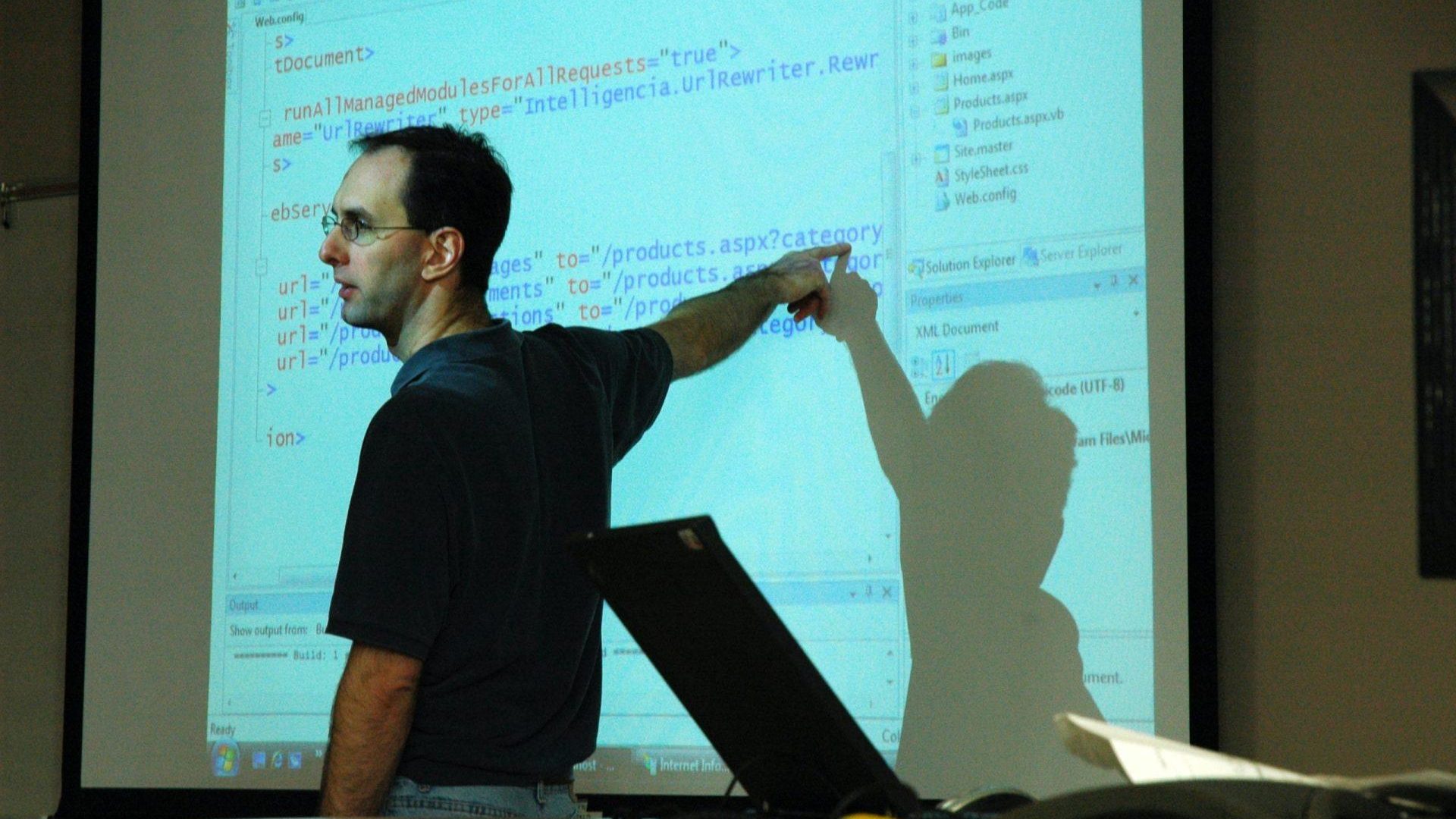
PSC presents
See specific events for dates and times
PSC staffers will be contributing to SC23 by presenting some of the work they’ve been busy with. Don’t miss them!
The Wide Area Classroom: 24,000 HPC Students and Counting.
Mon. Nov. 13, 1:30 – 5 pm, Rm. 506
Paper presented by Tom Maiden and Valerie Rossi.
MuST – A High Performance ab initio Framework for the Study of Disordered Structures.
Tues. Nov. 14, 3 – 3:30 pm, Intel Corporation Booth 617
Wed. Nov. 15, 10 – 10:30 am, Intel Corporation Booth 617
Talk presented by Yang Wang.
BOF: Providing a Unified User Interface and Experience for Geographically Dispersed Computing Resources.
Wed. Nov. 15, 12:15 – 1:15 pm, Rm 704 – 706
Sergiu Sanielevici
BOF: ACCESS Resource Provider Forum.
Thur. Nov. 16, 12:15 – 1:15 pm, Rm 405 – 407
Sergiu Sanielevici
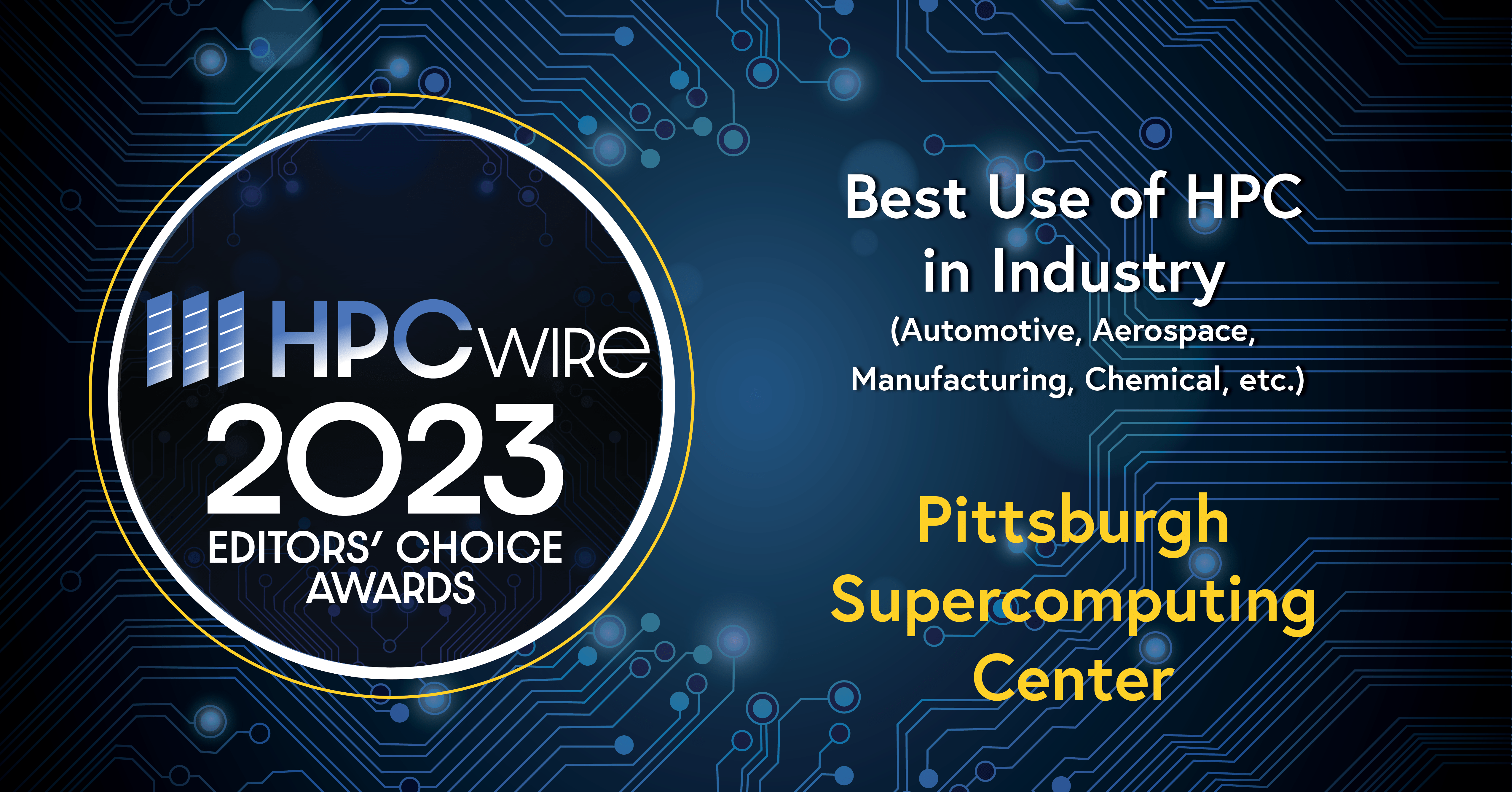
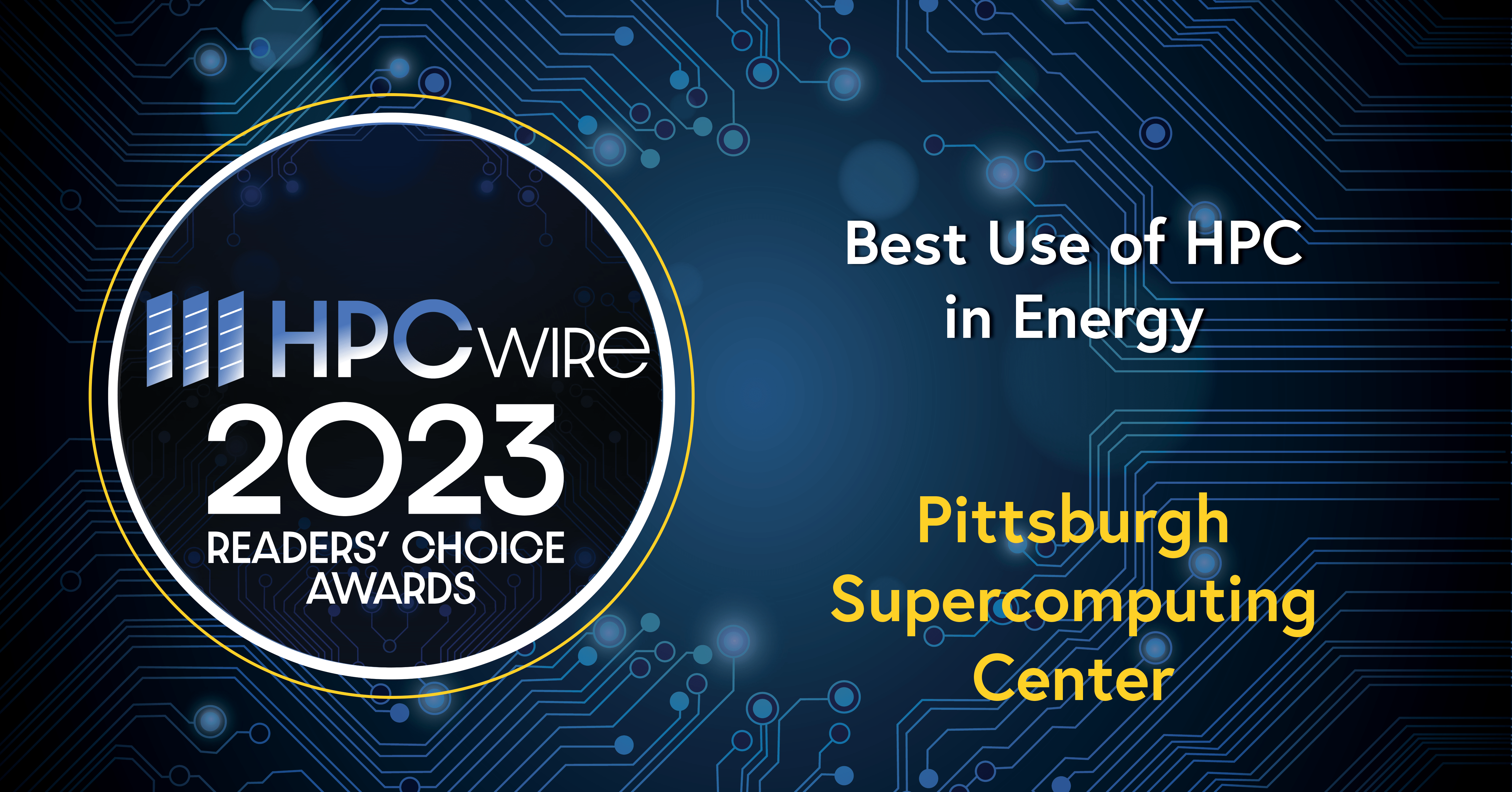
PSC receives two HPCwire 2023 Awards!
PSC has been recognized in the annual HPCwire Readers’ and Editors’ Choice Awards, presented at the 2023 International Conference for High Performance Computing, Networking, Storage, and Analysis (SC23), in Denver, Colorado.
PSC was recognized with the following honors:
- Editors’ Choice: Best Use of HPC in Industry
- Readers’ Choice: Best Use of HPC in Energy
About PSC
Pittsburgh Supercomputing Center is a joint computational research center with Carnegie Mellon University and the University of Pittsburgh. Our mission is to enable the advancement of science and research. We cultivate collaborative partnerships, empower the next generation of researchers, and provide cutting-edge cyberinfrastructure.
Our collaborations & research
Apply to join our team today!
Join our team and help advance state of the art high performance computing, communications, and data analytics.
Pittsburgh Supercomputing Center (PSC) is a joint effort of Carnegie Mellon University and the University of Pittsburgh. PSC is located minutes from the heart of Pittsburgh, surrounded by culture and education.
